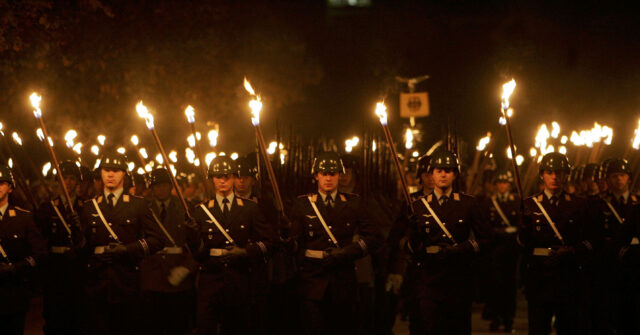A growing debate is emerging in Germany as to whether the government should reintroduce compulsory military conscription after it was abolished in 2011 by former chancellor Angela Merkel.
At present, Germany’s military forces are underfunded and undermanned, with a recent report finding that there were some 27,000 positions in the Bundeswehr (literally ‘Federal Defence [Force]’) left vacant last year, out of a total of 164,000.
The defence spokesman for the right-populist Alternative for Germany (AfD) party, Rüdiger Lucassen, said that such figures are “disastrous” and that, in response, his party would be looking to put forward a measure to reinstate national conscription.
The Reservist Association of the Bundeswehr also backed the idea, with the organisation’s president, Patrick Sensburg, saying on Friday: “We believe that Germany is not capable of defence without conscription, in whatever form.”
The debate surrounding conscription in the country was kicked off late last month by the recently installed defence minister, Boris Pistorius, who said that former chancellor Angela Merkel’s decision to remove the compulsory service was a “mistake”.
The defence chief claimed that he was not calling for a return of conscription out of fear of a potential war with Russia, but rather merely to foster a “connection to civic society at large” and to normalise military service within Germany.
German Tanks Roll East: Berlin Approves Leopard 2s for Ukraine https://t.co/umMWVjhD8W
— Breitbart London (@BreitbartLondon) January 25, 2023
In addition to calling for the bolstering of the ranks of the Bundeswehr, Pistorius said this week that the military needs another €10 billion per year in addition to the €100 billion special fund committed by Chancellor Olaf Scholz last year to finally meet the country’s NATO requirements of 2 per cent of GDP.
Despite being the richest country in Europe, Germany has consistently failed to meet over the past decade, with U.S. President Donald Trump having criticised it as “delinquent”.
Currently, the defence budget of the nation is expected to rise by €2.76 billion to approximately €50.1 billion. However, Pistorius said that his proposed €10 billion in additional funding will be required in light of the increasing costs of the war in Ukraine, with Germany committing to send 14 Leopard 2 main battle tanks to the conflict zone which will be needed to be replaced.
Germany is also in the process of purchasing new fighter jets, air defence systems, armoured vehicles, rocket launchers, and anti-aircraft missiles, on top of 100,000 hand grenades, 22 million rounds of ammunition, and 28,000 combat helmets, all of which have increased in price due to soaring inflation.
While there are growing calls for the return of conscription from political and military figures, there appears to be little appetite for war among the German people. A YouGov survey this week found that a quarter of the population would seek to leave the country should war be brought to their homeland, while 33 per cent would try to carry on with their lives as normally as possible.
In contrast, just 11 per cent said that they would be willing to pick up arms and defend their country if called upon.
The German government is reportedly considering diverting green agenda subsidies aimed at cutting coal power to the defence industry in order to ramp up production of arms amid the war in Ukraine. https://t.co/hcNb9GscUj
— Breitbart News (@BreitbartNews) February 6, 2023
Follow Kurt Zindulka on Twitter here @KurtZindulka


